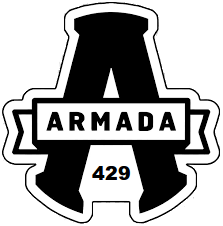Package Exports
- @saiballo/html-validator-enhanced
- @saiballo/html-validator-enhanced/main.js
This package does not declare an exports field, so the exports above have been automatically detected and optimized by JSPM instead. If any package subpath is missing, it is recommended to post an issue to the original package (@saiballo/html-validator-enhanced) to support the "exports" field. If that is not possible, create a JSPM override to customize the exports field for this package.
Readme
html-validator-enhanced
A Node module with optional settings for validating HTML pages using the "validator.w3.org/nu" or "whatwg" standard. Forked from html-validator
Installation
Available on npm:
npm install @saiballo/html-validator-enhanced --saveUsage
Create a function like this if you want to validate a html fragment:
(async () => {
const validator = require("@saiballo/html-validator-enhanced");
const options = {
data: "<p>not correct</h1></p>",
isFragment: true,
format: "json"
}
try {
const result = await validator(options);
console.log(result);
} catch (error) {
console.error(error);
}
})()If you need to validate a local page with "data" attribute:
(async () => {
const validator = require("@saiballo/html-validator-enhanced");
const fs = require("node:fs");
const options = {
data: fs.readFileSync("page-to-validate.html", "utf8"),
format: "json"
}
try {
const result = await validator(options);
console.log(result);
} catch (error) {
console.error(error);
}
})()The complete default configuration that you can override is:
const options = {
"validator": "WHATWG",
"isLocal": false,
"isFragment": false,
"format": "json",
"ignore": [],
"whatwgConfig": {
"elements": [],
"rules": {}
}
}Parameters
// Possible values: "WHATWG" | "https://validator.w3.org/nu/"
//"WHATWG" is recommended. it will validate against the WHATWG standards.
"validator": "WHATWG"
// set this to true if you want to validate local urls
"isLocal": false
// set this to true only if all your pages are not a complete document
// if only certain pages are fragments, you can use "isFragment: true" in these pages as front matter data
"isFragment": false
// this is the formatting of the returned data. it supports json (default), html, xhtml, xml, gnu and text for W3C and only json for WHATWG
"format": "json"
// only for "WHATWG" validator. string or array of strings or rules (when using WHATWG) you want the checker to remove in the response. even partial text.
// e.g. "ignore": ["Mismatched close-tag, expected '</div>' but found '</body>'", "another partial error response text"]
"ignore": []
// only for "WHATWG" validator. additional configuration for elements and rules
"whatwgConfig": {
"elements": [],
"rules": {}
}custom WHATWG configuration
// with this example, you add a custom tag called "customtag" to the valid tags in the validation. see https://html-validate.org/guide/metadata/simple-component.html
// additionally, you set the "heading-level" rule to "on" instead of "off". see https://html-validate.org/rules/index.html
"whatwgConfig": {
"elements": [
{
"customtag": {
"flow": true,
"phrasing": true
}
}
],
"rules": {
"heading-level": "error"
}
}Team ARMADA 429

- Lorenzo "Saibal" Forti


